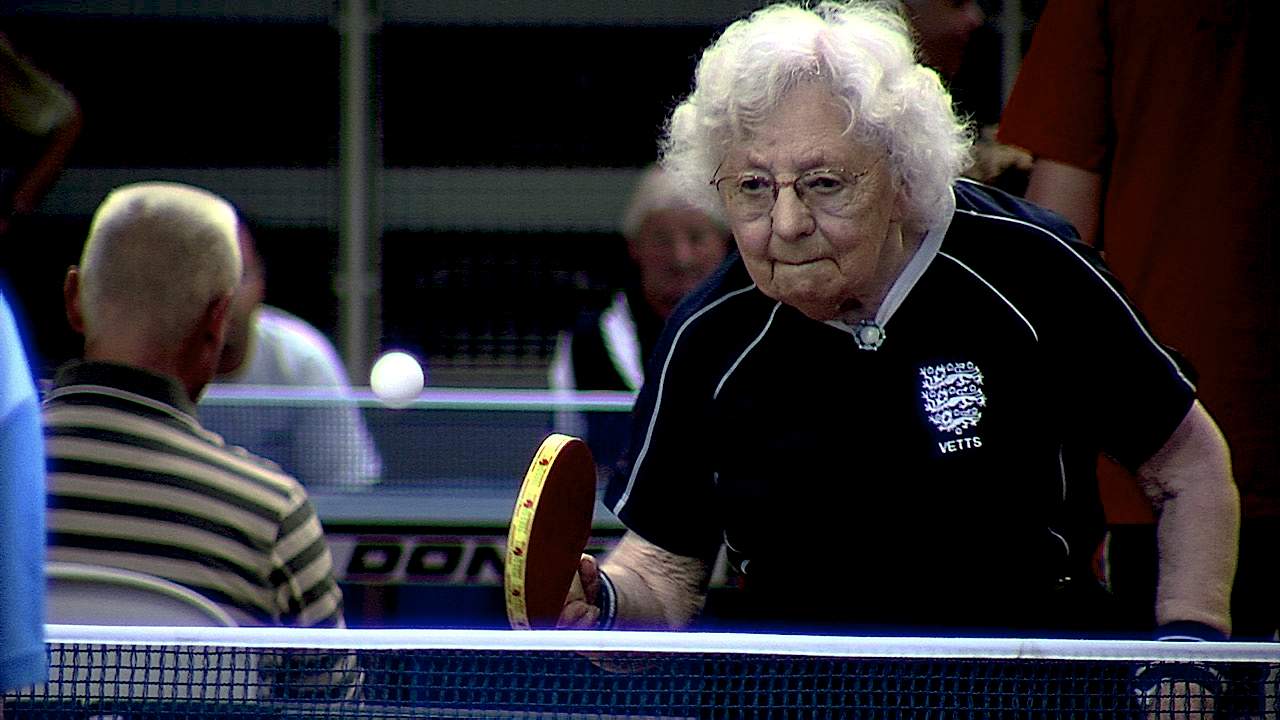Ping Pong
It's just a film about ping pong, adorable olds and fighting spirit.
Overview
Sports movies tend to follow a fairly formulaic structure. We meet the competitors; we begin to see their strengths, weaknesses and that potential Achilles heel; we are introduced to their primary competitors; and then, after a couple of well-timed training montages, we watch, bated breath, as our hero manages to defy the odds and win miraculously/lose heroically.
If you've seen Rocky, The Fighter, Remember the Titans or a hundred other sports films, then you already know the narrative arc of Ping Pong. Yet despite its predictability, this heartwarming documentary from little-known British director Hugh Hartford manages to sidestep the usual pitfalls of the genre, basically through the sheer strength of the characters.
Ping Pong tells the story of the World Over 80s Table Tennis Championships in Inner Mongolia almost entirely through the perspective of the players themselves. There is 81-year-old Terry, who, prior to the tournament, was given a week to live; former bodybuilder Les, who, at 89, still uses weightlifting to prepare for the tournament; the trash-talkin', gun-toting Texan Lisa, whose 85 years have done nothing to diminish her wily competitive streak; and the championship's elder stateswoman, the 100-year-old Aussie Dot.
Hartford does what many great documentarians have done before him, retreating from the role of writer. He is happy to simply leave the camera rolling and have the characters tell their own stories — their history, their motivations and what it means to be an athlete in the final chapters of their lives.
Yet this picture is far more than simply a series of talking heads. Hartford takes great pains to capture the richness of these characters and their lives. The film takes us into their homes and training venues and watches as they cook strudel, show off old photo collections and, in one of the film's most touching scenes, guide us around the dementia ward that ping pong became a respite from. This level of detail gives the film an immersive quality. Even in a screening filled with cynical critics and hardened media-folk, a championship win from one of the octogenarians had the cinema quietly cheering.
Despite the film's fixation on death and mortality, Ping Pong is a surprisingly hopeful and uplifting film. In one scene, Terry boasts that while bowel cancer could take away his penis, it couldn't take away his sex life. We come to see that while these characters may have accepted their impending death, that doesn't mean they're willing to go quietly into that cold night.
Add to all this the fact that this may be the first film to show an 89-year-old doing a peck dance. That one was worth the price of admission on its own.





